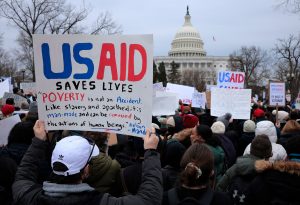Inequality Is a Health Risk—and It’s Getting Worse
Inequality Is a Health Risk—and It’s Getting Worse
Recent studies have shown that inequality is not only harmful to society as a whole, but it also poses serious...

Inequality Is a Health Risk—and It’s Getting Worse
Recent studies have shown that inequality is not only harmful to society as a whole, but it also poses serious health risks to individuals. When a society becomes more unequal, health outcomes tend to worsen for the most vulnerable populations.
Low-income individuals are more likely to experience poor health outcomes, including higher rates of chronic diseases and lower life expectancy. Inequality also exacerbates mental health issues, as the stress of financial insecurity and lack of access to quality healthcare can take a toll on mental well-being.
Furthermore, the gap in healthcare access between the rich and poor continues to widen, with disparities in health insurance coverage and access to medical services becoming more pronounced.
Addressing inequality is not only a moral imperative, but it is also crucial for improving public health outcomes. Policies that aim to reduce income inequality, increase access to healthcare, and provide social safety nets for the most vulnerable are necessary to ensure a healthier and more equitable society.
As the gap between the rich and poor continues to widen, it is clear that the health risks associated with inequality will only become more pronounced. It is imperative that action is taken to address these disparities and ensure that all individuals have access to the resources and support needed to lead healthy lives.
Ultimately, the health of a society is intrinsically tied to its level of equality. As inequality continues to grow, so too will the health risks faced by the most vulnerable members of our communities.




